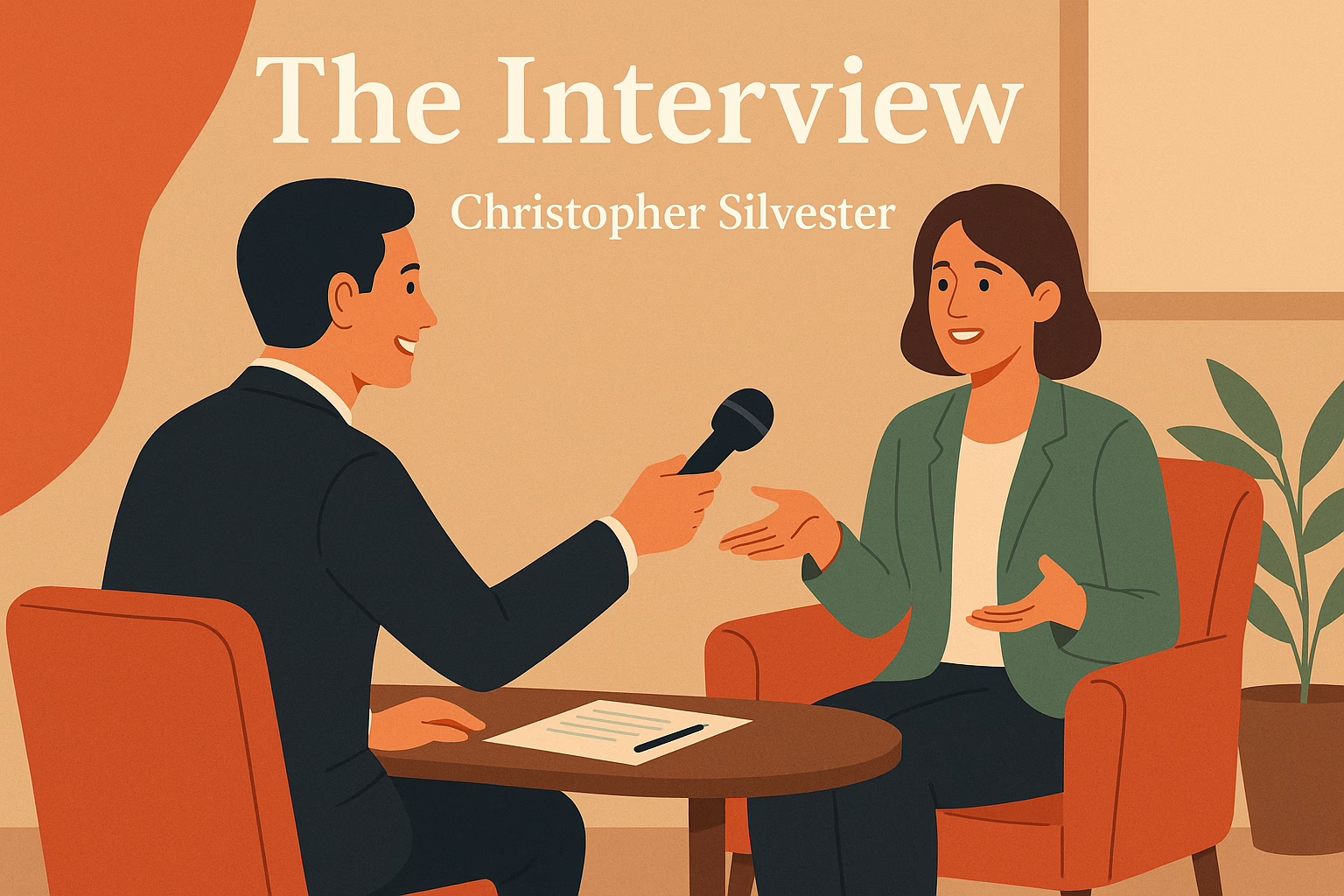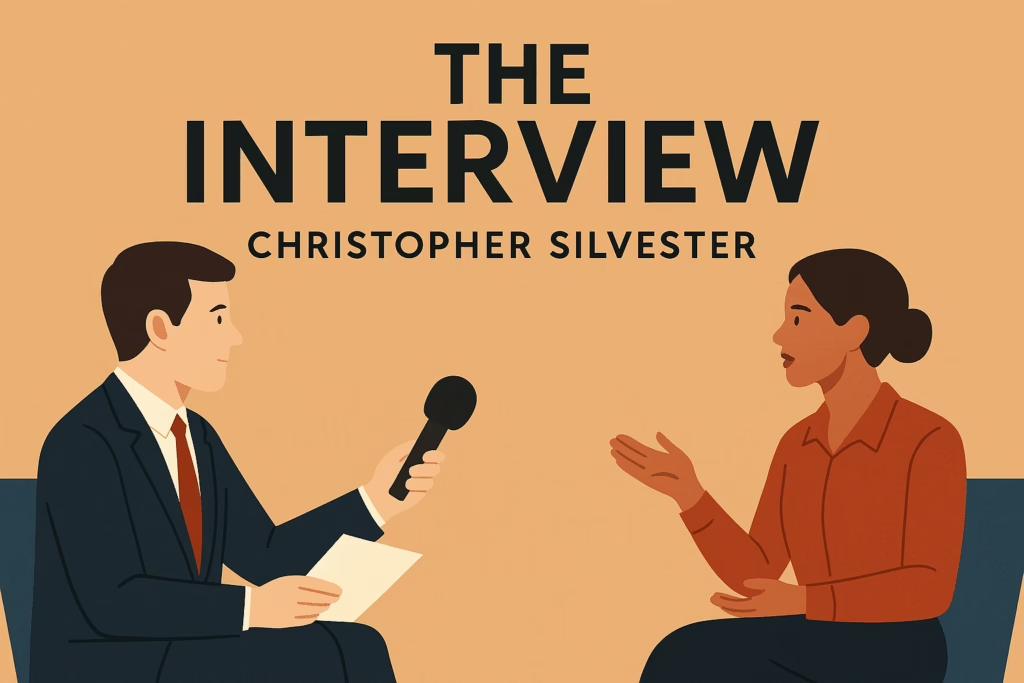SUMMARY — The Interview (Part I & II)
“The Interview,” compiled by Christopher Silvester, explores the nature, purpose, and mixed reputation of interviews in modern society. Part I examines different perspectives on interviews across history. While some consider interviews a reliable source of truth and a powerful journalistic tool, many writers and celebrities dislike being interviewed. They feel interviews invade their privacy, distort their personalities, or reduce their creative work to superficial questions. Famous figures like Lewis Carroll, Rudyard Kipling, and Saul Bellow expressed strong resentment toward interviews, comparing them to an assault on personal freedom. Despite these objections, the chapter establishes that interviews have become the most important way of understanding public personalities.
Part II features Mukund Padmanabhan’s interview with Umberto Eco, the celebrated Italian academic, philosopher, and novelist. Eco explains that although he appears to have mastered many fields—semiotics, fiction, essays, and academic research—everything he does is connected by a common philosophical thread. He credits his productivity to making use of the “interstices” or small gaps of free time in daily life. Eco discusses his unique academic writing style, which blends scholarly ideas with narrative storytelling. He clarifies that he considers himself primarily a university professor and that novel-writing is secondary. When asked about his internationally famous novel The Name of the Rose, Eco admits that its massive success is a mystery, suggesting that timing played a significant role.
Together, the two parts give readers a balanced understanding of interviews as both a revealing journalistic form and an experience that can be uncomfortable for public figures. The chapters highlight how interviews shape public knowledge and how different personalities respond to being questioned.
About the Author — Christopher Silvester
Christopher Silvester is a British journalist, editor, and writer known for his sharp understanding of modern journalism and media culture. A graduate of Cambridge University, he has written extensively for major publications, including The Independent and The Daily Express. Silvester is particularly respected for his editorial work with The Penguin Book of Interviews, a celebrated anthology that traces the evolution of the interview as a literary and journalistic form.
In The Interview, he explores how interviews shape public opinion, reveal the personalities of famous figures, and sometimes provoke discomfort or controversy. His writing combines clarity, insight, and historical awareness, helping readers appreciate the power and complexity of interviews in contemporary society.
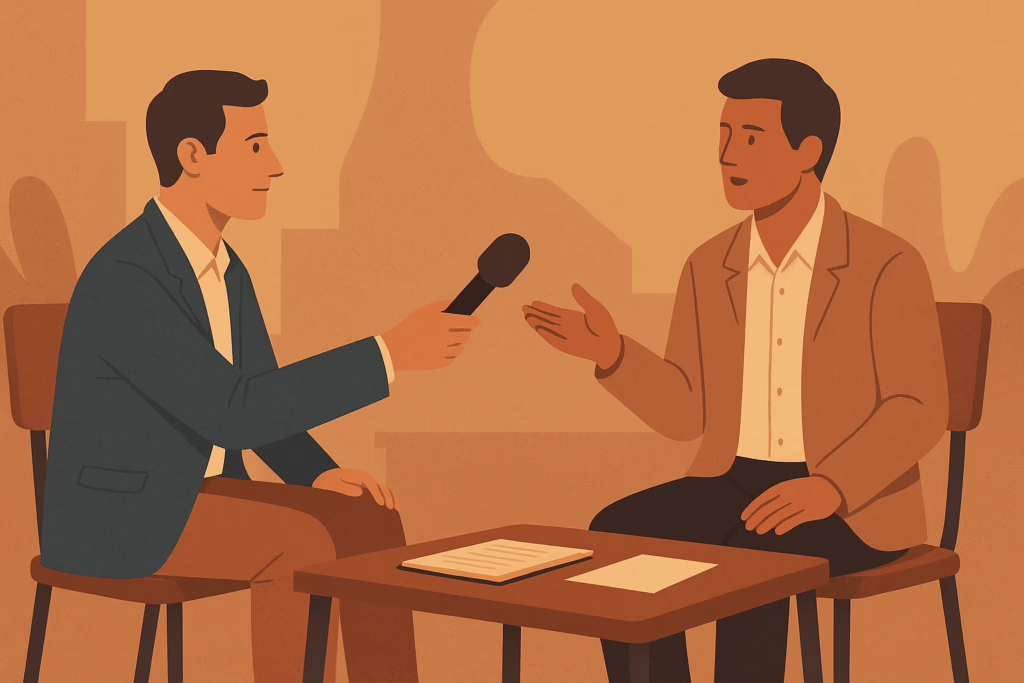
Textual Questions and Answers
THINK AS YOU READ — PART I (Page 67)
1. What are some of the positive views on interviews?
Some people believe that interviews, in their highest form, are a source of truth and can even be considered an art. They see interviews as an important way of understanding personalities and gaining vivid impressions of contemporaries.
2. Why do most celebrity writers despise being interviewed?
Most celebrity writers dislike interviews because they feel the process invades their privacy and exposes them in ways they cannot control. They often feel that interviews diminish them, wound them, or take away a part of their identity.
3. What is the belief in some primitive cultures about being photographed?
In some primitive cultures, people believe that when a photographic portrait of someone is taken, it steals that person’s soul. This belief makes them fearful of being photographed or interviewed.
4. What do you understand by the expression “thumbprints on his windpipe”?
Saul Bellow used this expression to explain how interviews make him feel suffocated and uncomfortable, as though someone is physically pressing on his windpipe and restricting his ability to speak freely.
5. Who, in today’s world, is our chief source of information about personalities?
In today’s world, interviews are our chief source of getting information about personalities, since “almost everything of moment reaches us through one man asking questions of another.”
UNDERSTANDING THE TEXT — PART II (Pages 70–71)
1. Do you think Umberto Eco likes being interviewed? Give reasons for your opinion.
Yes, Umberto Eco seems comfortable with interviews. He answers questions patiently, provides detailed explanations, and even tells stories to illustrate his points. He does not show irritation or reluctance, which suggests he accepts interviews as part of his public life.
2. How does Eco find the time to write so much?
Eco says he makes use of the “empty spaces” in life, which he calls interstices—small gaps of time that others usually waste. For example, he claims that while waiting for someone’s elevator to arrive, he can complete a whole article.
3. What was distinctive about Eco’s academic writing style?
Eco’s academic writing has a narrative quality. He writes scholarly works like stories, including his trials, errors, and discoveries. This personal, engaging method sets him apart from the dry and depersonalised tone common in academic work.
4. Did Umberto Eco consider himself a novelist first or an academic scholar?
Eco considered himself primarily a university professor, not a novelist. He says clearly that he participates in academic conferences rather than writers’ gatherings and views writing novels as something he does on Sundays.
5. What is the reason for the huge success of the novel, The Name of the Rose?
Eco believes the success of the novel is a mystery. While some think it may be due to its medieval setting, Eco feels its timing was crucial—that if he had written it ten years earlier or later, it might not have succeeded. He emphasises that no one can predict the success of a book.
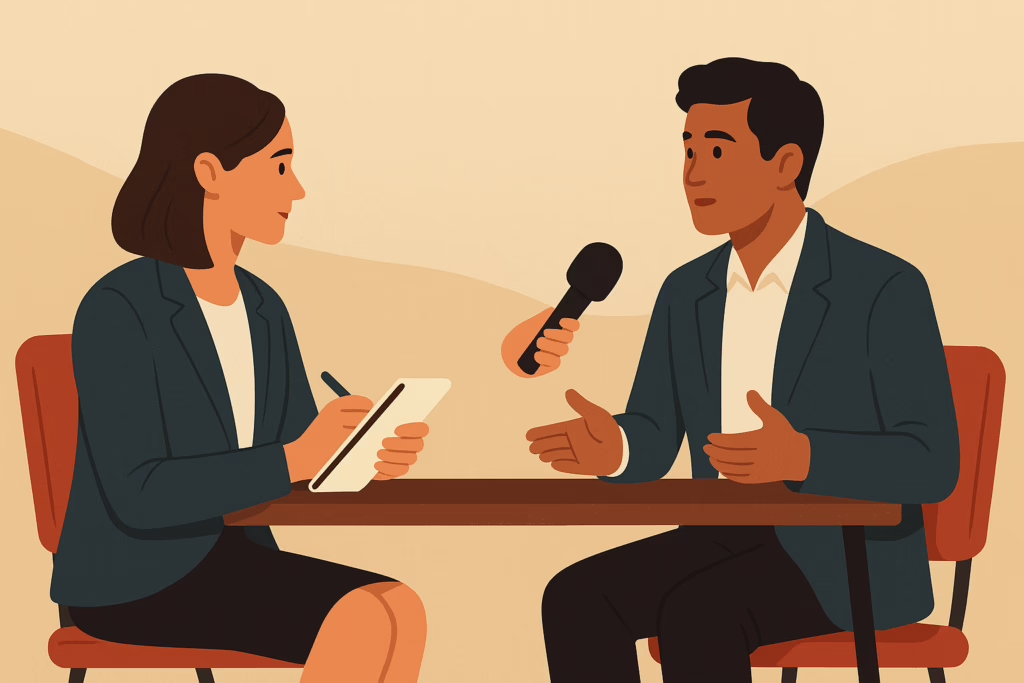
TALKING ABOUT THE TEXT — (Pages 71–72)
(Model Answers — as these require personal opinion, answers are provided in exam-style format.)
1. Talk about any interview you have seen or read. How did it help you understand the celebrity and the interviewer?
Interviews allow us to hear a celebrity’s thoughts in their own words. They reveal personality traits, values, and personal experiences that are not visible in their work alone. A good interviewer asks insightful questions and creates a comfortable atmosphere, helping the audience gain a deeper understanding of the celebrity’s achievements and challenges.
2. Which medium do you prefer for interviews—print, radio, or television? Why?
Television interviews provide visual cues such as body language, facial expressions, and tone, making the conversation more engaging and personal. Print interviews may be more in-depth, while radio relies heavily on voice. Individual preference varies.
3. Do celebrities have a right to privacy? Do interviewers sometimes go too far?
Yes, celebrities have the right to privacy. While interviews help the public understand their work, interviewers sometimes cross boundaries by asking intrusive or uncomfortable questions, causing embarrassment or distress. Ethical interviewing requires sensitivity and respect.
NOTICING DISCOURSE LINKERS AND SIGNALLERS — (Pages 72–73)
(Explanation + Examples)
Linkers
These are words that connect ideas smoothly, such as that, which, this, over 40, talking about novels, which brings me to my next question, etc. They help maintain coherence in a conversation. Examples are already italicised in the text.
Signallers
These indicate a shift in topic. Examples include:
- “Which brings me to another question…”
- “But let me tell you another story…”
They prepare the listener for a new idea and maintain a smooth flow in conversation.
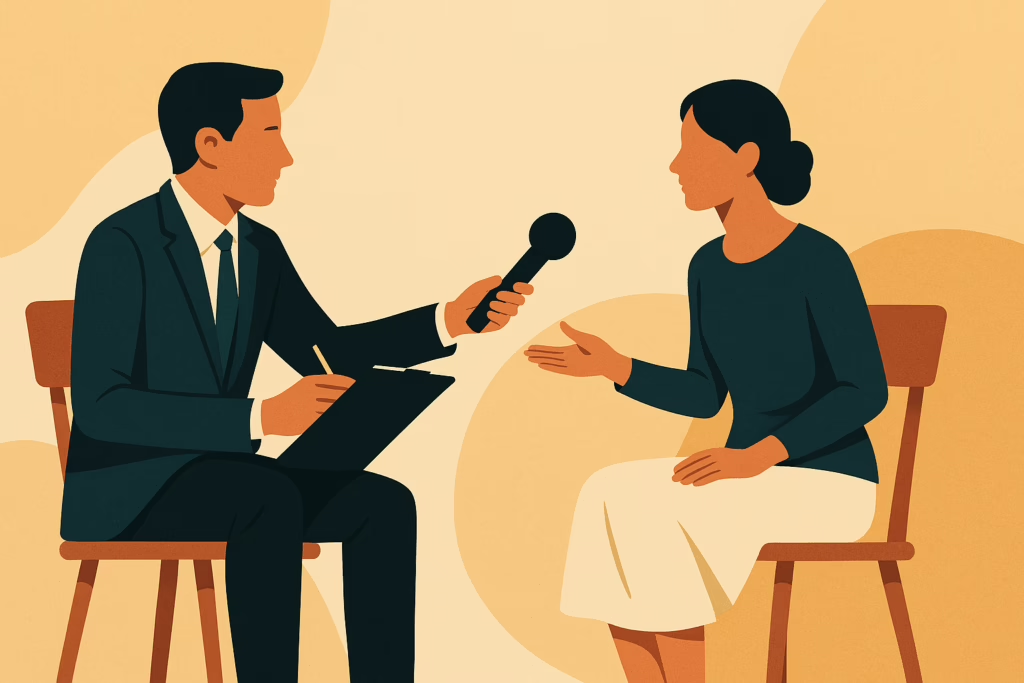
WRITING — SHORT REPORT OF THE INTERVIEW (MODEL ANSWER)
(For the task: “Write a short report of the interview with the salient points.”)
REPORT ON THE INTERVIEW WITH UMBERTO ECO
Mukund Padmanabhan of The Hindu interviewed Umberto Eco, the renowned Italian academic and novelist, who is celebrated for his works on semiotics and for his bestselling novel The Name of the Rose. Eco explained that although he appears to do many things, all his work is connected by the same philosophical interests. He revealed that he writes during small gaps of free time which he calls “interstices.”
Eco discussed his unconventional academic style, which incorporates storytelling and personal reflection. He emphasised that he considers himself primarily a university professor rather than a novelist. Commenting on the success of The Name of the Rose, Eco admitted that its popularity remains a mystery and suggested that the timing of its publication may have played a major role. The interview provided insights into Eco’s creative process, disciplined work habits, and his views on literature and scholarship.
THINGS TO DO — (MODEL COMPLETION)
Interview a person you admire and write the responses.
(A sample model answer — you may customise with your own person.)
I interviewed my school’s sports captain, who is admired for her discipline and leadership. She explained that balancing academics with sports requires strict time management. She shared that her greatest inspiration is her coach, who taught her the value of perseverance. She also expressed her wish to represent the state in national competitions. The interview highlighted her dedication and positive attitude.

